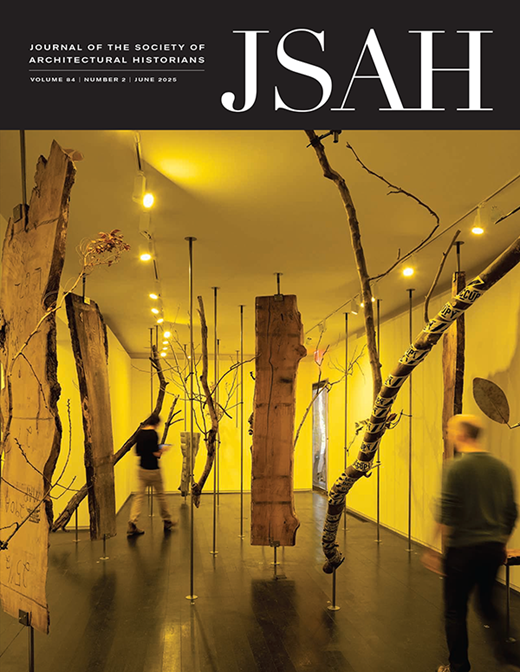SAH Board Approves Inclusive Pricing Model for Global Members
The Society of Architectural Historians (SAH) is an international learned society serving thousands of members throughout the world.
At its meeting on April 30, 2025, the SAH Board of Directors approved a proposal brought by the Membership Committee to establish discounted membership rates for global scholars living and working in countries listed as “low income” by the World Bank. This initiative is grounded in economic equity, international engagement, and increasing membership from underrepresented regions.
This fall, SAH will introduce two discounted membership tiers based on World Bank’s classification of economies: Residents of Low-income countries will be eligible for a 75% discount on individual membership, and residents of Lower-Middle-income countries will be eligible for a 50% discount. World Bank classifies nations by their Gross National Income (GNI) per capita.
Detailed instructions for joining SAH at this new membership tier will become available in early fall 2025. If you would like to receive updates about the SAH Global membership, please add your email to our mailing list.
The approved proposal also included provisions for enhanced discounts for crisis-affected countries. A small subset of countries facing ongoing conflict or humanitarian crises may be designated for the highest discount tier of 75% discount off regular individual membership, regardless of broader World Bank classification. These countries include Haiti, the Democratic Republic of Congo, the West Bank, and Gaza. While some are already classified as low-income, others fall into the lower-middle-income bracket. Elevating them to the 75% discount tier reflects SAH’s commitment to global equity, access, and support for scholars working under extraordinary circumstances. This list will be reviewed annually to ensure responsiveness to evolving global conditions.
By addressing cost as a key obstacle to participation, SAH aims to re-engage past members from eligible countries and bring new global scholars into its community.
“Expanding international membership will enhance opportunities for networking, recognition, and academic collaboration across diverse regions,” wrote SAH Membership Committee Chair Tamara Rice in her written proposal to the Board. “I am excited the Board sees the potential to reinforce [SAH’s] mission of inclusivity and accessibility through this measure,” she said.
“We wish to foster a truly global academic community,” said SAH Executive Director Ben Thomas, “A broader exchange of ideas benefits everyone. Creating equitable access to SAH’s respected platform and high-quality resources is important to me, SAH President Mohammad Gharipour, and to the mission of the organization.”
New global membership rates are one of several efforts from SAH in recent years to make itself more attractive to international scholars. In 2024, the Society announced its virtual conference, started during the Covid-19 pandemic, would continue as an annual fixture. Live online sessions paired with post-event recordings allow everyone to participate no matter their time zone or ability to travel. Additionally, the Society’s 2026 Annual International Conference is scheduled to be held in Mexico City, marking the first time in the organization’s history the conference will be held in the Global South.
Approximately one quarter of SAH’s members identify themselves as living in countries outside the United States.
About the Society of Architectural Historians
Founded in 1940, the Society of Architectural Historians is an international nonprofit membership organization promoting the study, interpretation and conservation of architecture, design, landscapes and urbanism worldwide. SAH serves a network of local, national and international institutions and individuals who, by vocation or avocation, focus on the built environment and its role in shaping contemporary life. SAH promotes meaningful public engagement with the history of the built environment through advocacy efforts, print and online publications, and local, national and international programs. Learn more at sah.org.
Media Contact: Olivia Archer, Communications Manager, oarcher@sah.org


